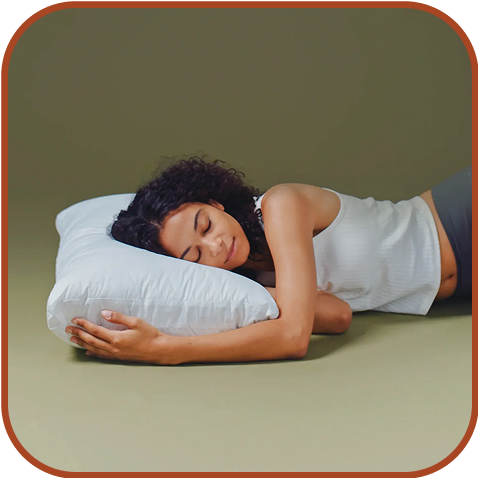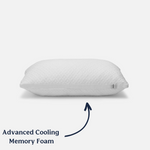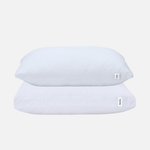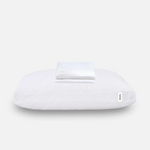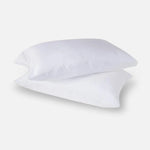If you have ever struggled with insomnia, you’ve probably had people tell you to consider taking magnesium for sleep. Magnesium, a mineral, can be found naturally in foods and can also be taken through a supplement form.
Magnesium has many uses, from bone health to relieving constipation and helping you sleep better. It may assist with things like improving high blood pressure and blood sugar. But is taking more of this mineral a good idea for those who are having sleep issues? You might be wondering: Does magnesium help you sleep?
What Happens When You Don’t Get Enough Magnesium?

If you’re truly deficient in magnesium, your body will start giving you subtle signs that you need more. Until you’re dangerously low on this mineral, your deficiency signs might be mistaken for other reasons.
Some of the signs you might be low on magnesium include:
- Feeling mentally numb or having no emotions.
- Delirium.
- Osteoporosis.
- Feeling fatigued.
- Weak muscles.
- Elevated blood pressure.
- Irregular heartbeat.
- Muscle cramps or twitches.
- Appetite loss.
- Nausea.
- Migraine headaches.
The Link Between Magnesium and Sleep
Having a low magnesium level can aggravate or cause sleep problems. It can cause people to suffer from insomnia, sleep restlessly, or frequently wake up. So if a lack of magnesium can cause sleep issues, how does a supplement work? Does magnesium make you tired?
Getting more magnesium can calm the leg twitching or cramping that might wake you up at night. It might also relax your nervous system enough that you’ll be able to sleep.
Increasing your daily magnesium level may be the ticket to getting more restorative sleep. If you suspect your magnesium levels could use a boost, you have two choices -- you can try to get more through food or you can take a magnesium supplement. If you think you’re severely low, you may want to start with the supplement. But if you don’t have many signs and they appear to be mild, dietary choices can help.
There are different types of magnesium supplements you can take, including magnesium citrate, magnesium gluconate, magnesium chloride, magnesium lactate, magnesium hydroxide, magnesium sulfate and others.
You can also use magnesium as a bathtime addition to help you relax. Epsom salts are known to feel relaxing, soothe tired muscles, and wind people down for the night before bedtime so they can sleep better.
If you are struggling with sleep problems, boosting your magnesium intake might be a good idea to see if it helps.
Taking Magnesium for Sleep

If you want to give magnesium a try to see if it improves your sleep, go for it. However, some people don’t like to take dietary supplements to improve sleep. And others shouldn’t take dietary supplements because it might interfere with other medications they’re on or with other medical conditions they have.
People who have diabetes, kidney disease, heart disease, or intestinal issues should stay away from magnesium supplements unless they are recommended by their doctor.
If you’re going to try supplements, the recommended daily dietary amount of magnesium is 310 to 360 milligrams for women or 400 to 420 milligrams for men. Since you likely get some magnesium from food, make sure you take that amount into consideration before deciding what dose of magnesium to take.
Also, you may want to consider talking to your doctor before you begin taking a magnesium supplement. You don’t want to take too much magnesium because it can be toxic. In fact, if you take extremely high doses, magnesium can kill you, so remember to proceed with caution.
If your doctor says it’s okay to try a supplement, it’s best to take it about an hour before bedtime.
Foods That Are High in Magnesium
For those who want to get their magnesium through food sources, here are some good foods to eat: pumpkin seeds, chia seeds, almonds, spinach, cashews, black beans, peanut butter, baked potatoes with skin, brown rice, yogurt, kidney beans, and bananas.
Try incorporating as many of these foods into your daily diet as possible. Then you can monitor your diet and see if your symptoms start to get any better.
Natural Ways to Promote Better Sleep
Whether or not you have a magnesium deficiency, there are things you can do to improve your sleep.
- White noise: Get a fan or a white noise machine to help soothe you at bedtime and mask those irritating sounds that can awaken you at night.
- Use high-quality bedding: It’s easier to go to sleep when your bedding feels amazing than when it feels like sandpaper against your skin. Comfortable, bed cooling sheets can be a great ally when it comes to getting better sleep.
- Find the right pillow: If you wake up sore or toss and turn because of neck pain, find a neck support pillow that feels fabulous.
- Limit the caffeine: If you want your morning coffee, that’s fine. But be mindful of any caffeine intake in the afternoon or evening because it can interfere with your sleep.
- Wind down with a warm bath: A warm Epsom salt bath in the hour before bed can feel relaxing enough to put you in the mood for sleep.
- Turn off the electronics: Blue light from your phone, tablet and other devices can trick your body into not releasing the same amount of sleep hormones as it normally would. Plus, the stress of incoming texts or emails might keep your mind overactive instead winding down.
- Get rid of the lights: A bedroom that has too much background light can impact your ability to go to sleep. And if you see car lights continually shining through your windows, it can also be jarring. Getting blackout blinds can help with that.
Magnesium Plays a Part in Sleep

Getting enough sleep isn’t only about one issue -- many factors play a role in whether you’re able to sleep restfully. If you have a true magnesium deficiency, getting additional magnesium either through food or supplement form may help.
But don’t forget to take an overall look at your bedtime routines and what more you can be doing to get restful sleep.
